This isn’t your average love story. It is a twenty year love story, one that spans my adult life. But it is also a lesson in perseverance and facing fears head on.
My first time kayaking on the Little White Salmon in Washington was in 2006. I was 17 years old and a student at World Class Kayak Academy. That lap, I swam out of a hole and my kayak went into a cave three rapids downstream. It was the worst swim of my kayaking career thus far, and the remainder of the run was a blur.
Fast forward 11 years. I had taken those years to hone in on my kayaking abilities in the southeast and elsewhere around the world. In the time since that Little White lap, I had won multiple Green Race Championships, competed in international races and freestyle kayaking events, and kayaked in over ten different countries. I even won a bronze medal at the 2013 Freestyle Kayak Worlds. Kayaking had become a part of my persona and winning races was something I was known for. Yet I continued to bypass the Little White after my experience as a teenager.


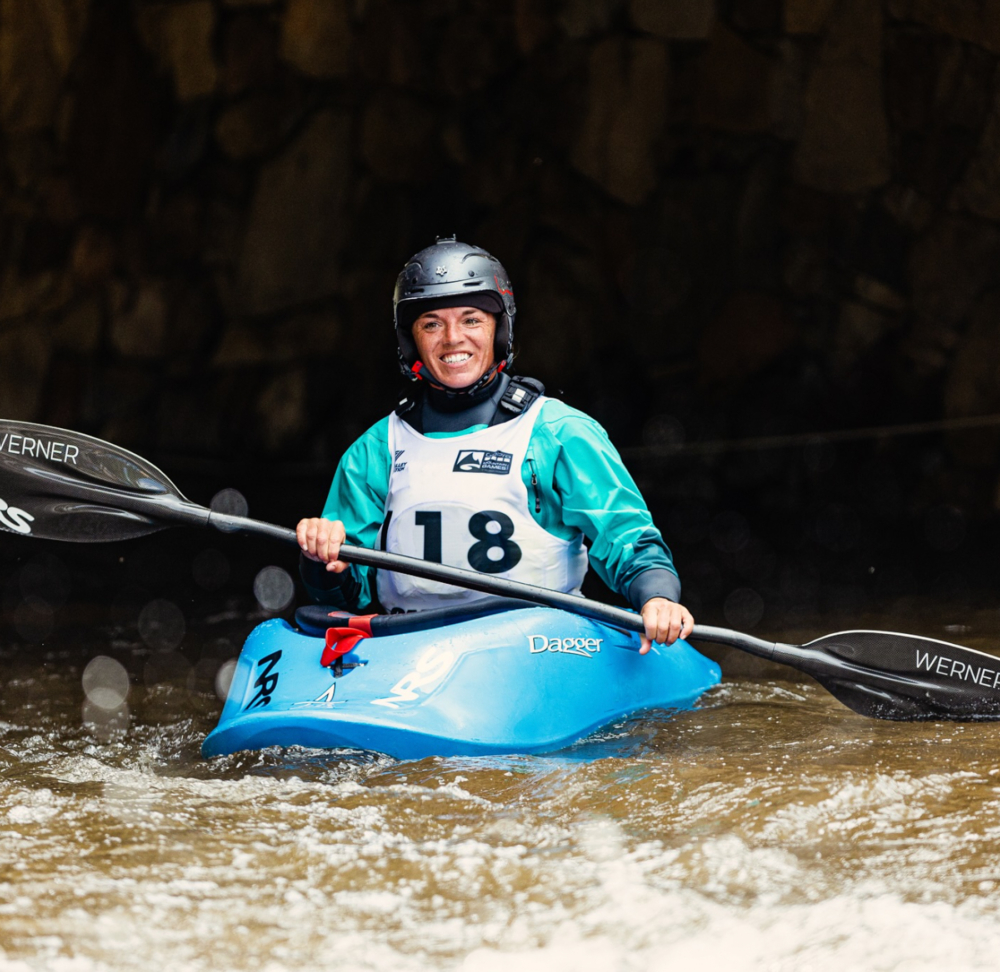
I can’t actually remember who I was with on my next Little White lap. However, I do remember breaking paddles (plural) and swimming out of the low head dam at the end of the run. I don’t remember really having “fun.” Honestly, I felt like more of a liability than anything. Many of my friends would do laps on laps on laps proclaiming how fun the river was, how special and amazing, but as a “joy river,” the Little White remained elusive—at least for me.
Two years ago, I found myself on the banks of the Little White once again. This time, it was to train for the race. The Little White Race has been around since 2011. Originally more of a grass-roots, community-only event, over the years the popularity had grown, with the “LDub Race” becoming one of the most popular Class V races in North America.
Mental pep talk and years of experience aside, I couldn’t shake a lingering lack of confidence. Sure, I had won the Green Race multiple times, but it’s only a five-minute race, the course more rocky, with nuanced moves to be made. In contrast, the rapids on the Little White are stacked on top of each other and the race course is 15+ minutes long.
I had to think about pacing myself through the top section and staying clean in the last half. Not knowing the rapids made my brain have to work even harder each turn I took, and having to try to remember where to go is mentally draining. Not to mention the physical nature of the race.
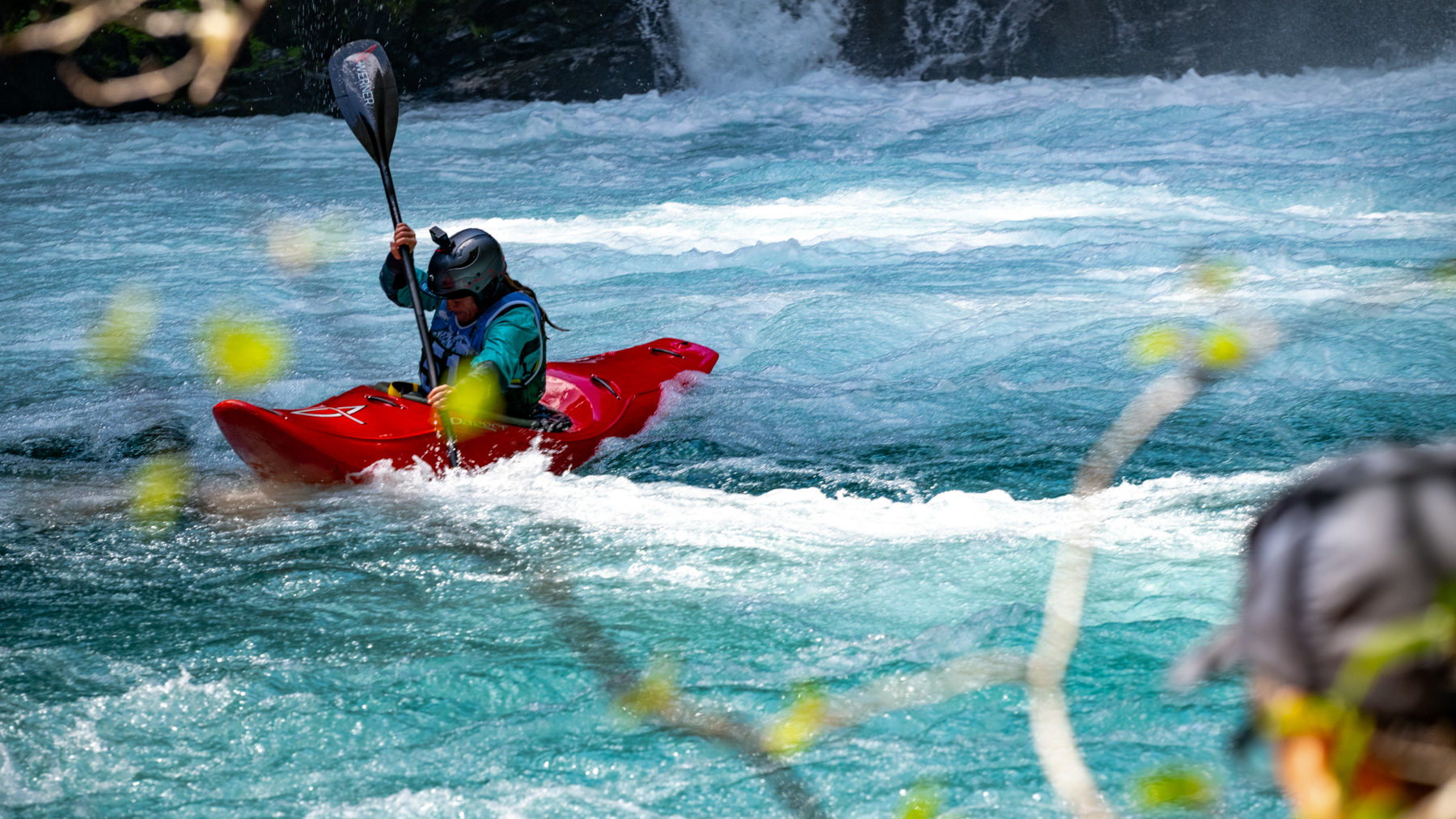
It felt as if everything was stacked against me.
Going through race lines with friends every lap was like trying to read a map in a language I didn’t know. Add in the community asking me about lines and if I was going to win—no pressure! The race came and went. I was stoked to have made it downstream without any massive mistakes but I knew people expected more from me. And I still didn’t know if I was racing because I wanted to or because the community and sponsors expected me to.
In 2024, I returned from a five month kayaking hiatus in El Salvador. I had taken a step back from paddling for my mental health. I wanted to feel the salt water on my body while leaning into my growing addiction for surfing on the ocean.
The Little White was higher than I have ever run it but I gritted my teeth through terror and trudged on. I felt strong from going to the gym, running and surfing all winter. My kayaking was fine, but my head games were real.
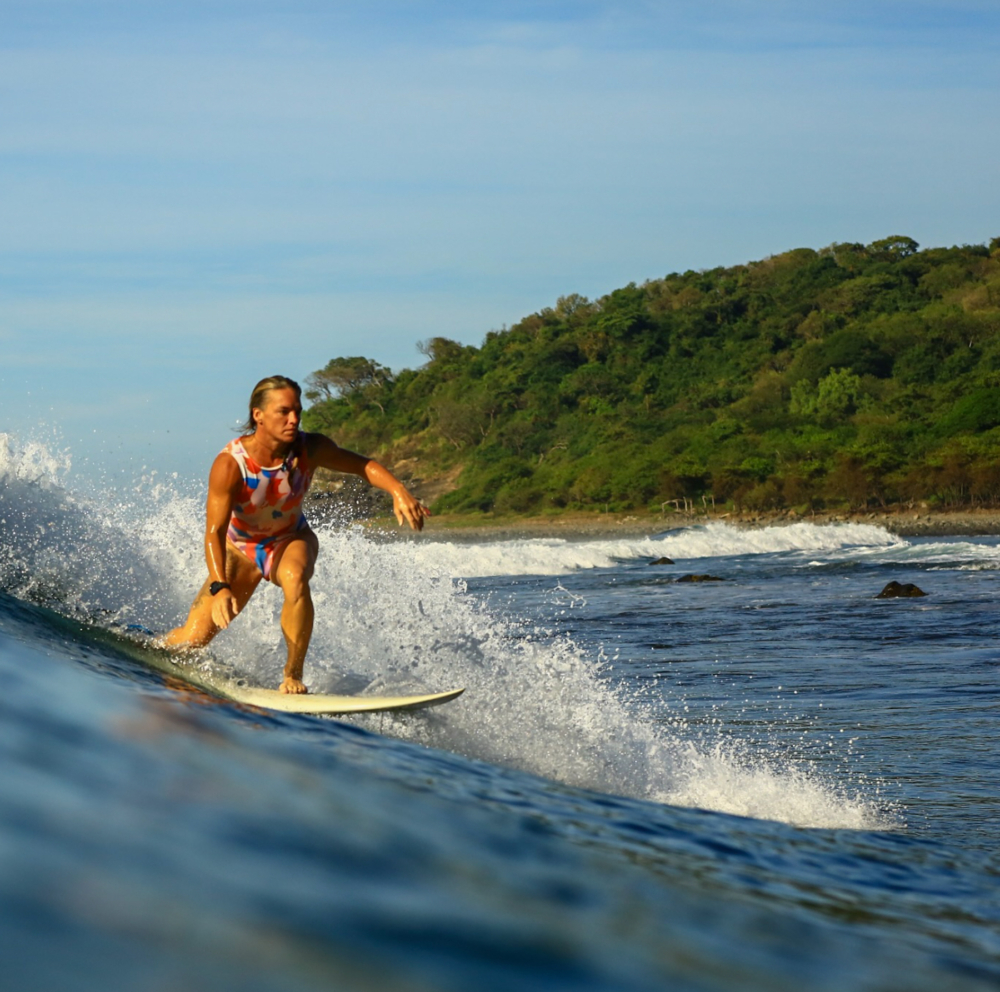
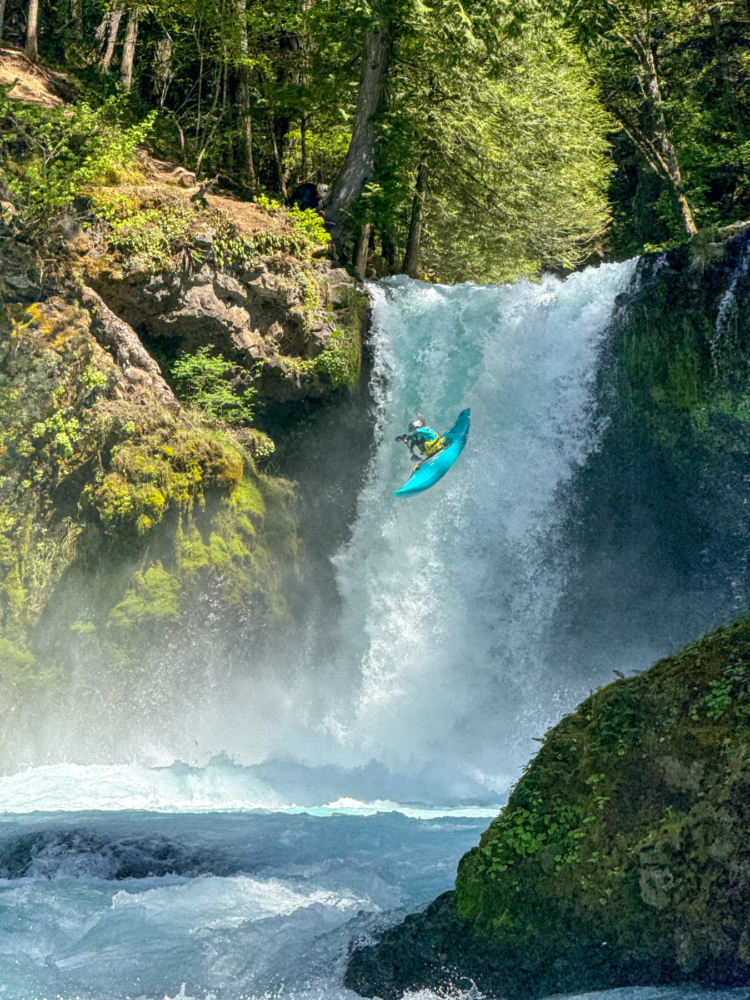
Sometimes it’s not even about your ability to get something done, it’s your brain that keeps you from being successful. I felt a need in my soul to keep trying to learn the lines and be able to smile the whole way downstream. I knew there had to be something to this river, why everyone loves it so much.
Once again, the race came and went. I was slowly learning the lines but I was still gripped as ever. Honestly, I was jealous of the happiness other people were finding from the river. At least the fun factor was 15% higher than the year before. That was a step in the right direction.
This year, I returned to the Little White after another five month kayaking hiatus. There were only ten days between my flight back to America and the race. The river was still high but I had a goal: remember all of the lines in the course.
And so, I started getting laps every day. Finding the humans I was comfortable with but still had to work hard to keep up with. To add to my life drama, I had come back from El Salvador with a bad infection and had to be put on strong antibiotics the week before the race. Between my infected body, aching muscles and monkey brain, I had to reevaluate my goals surrounding the race.
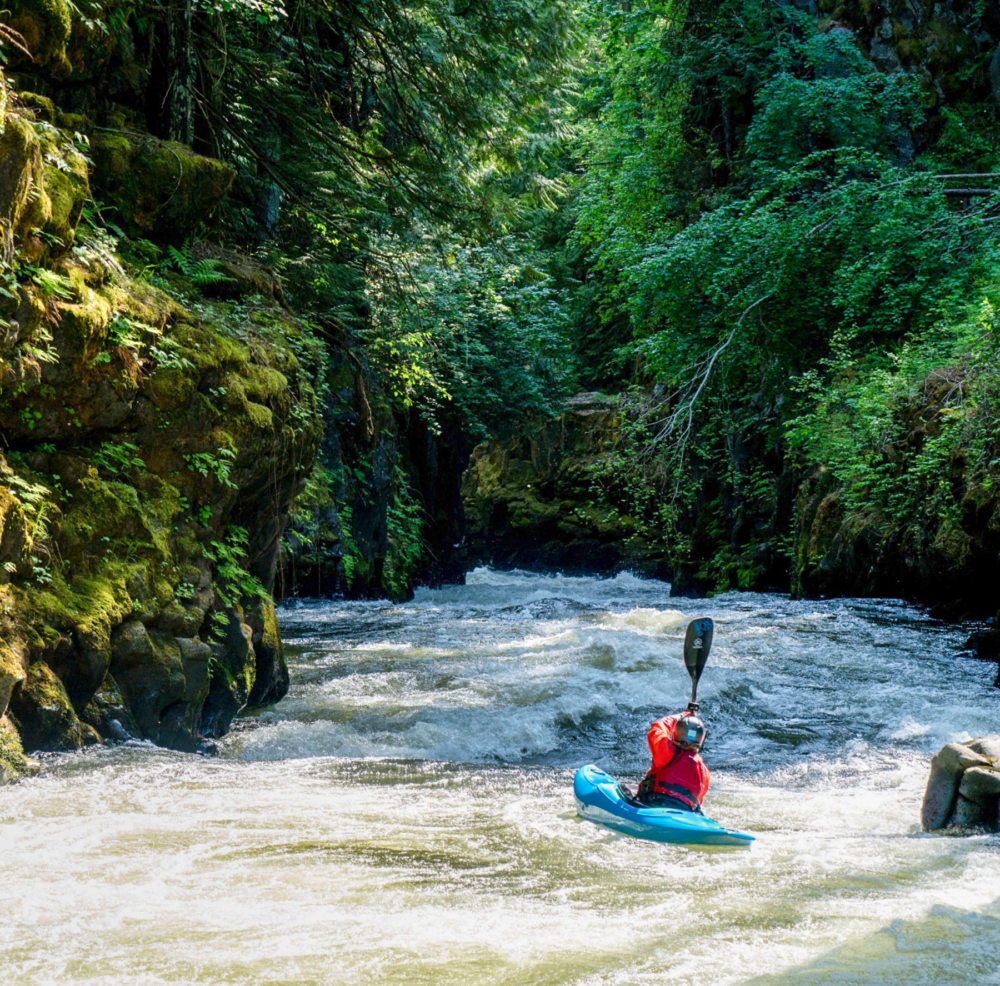
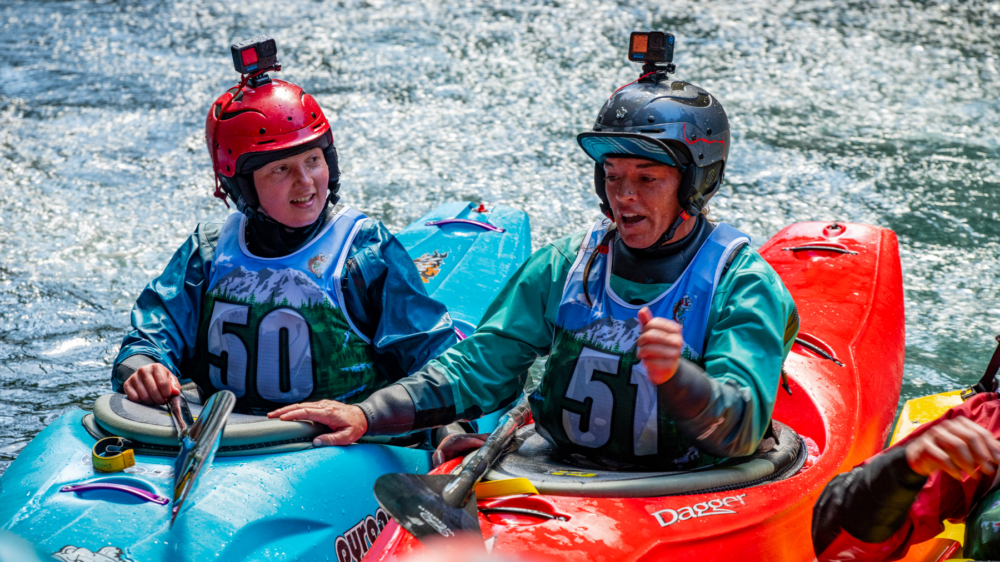
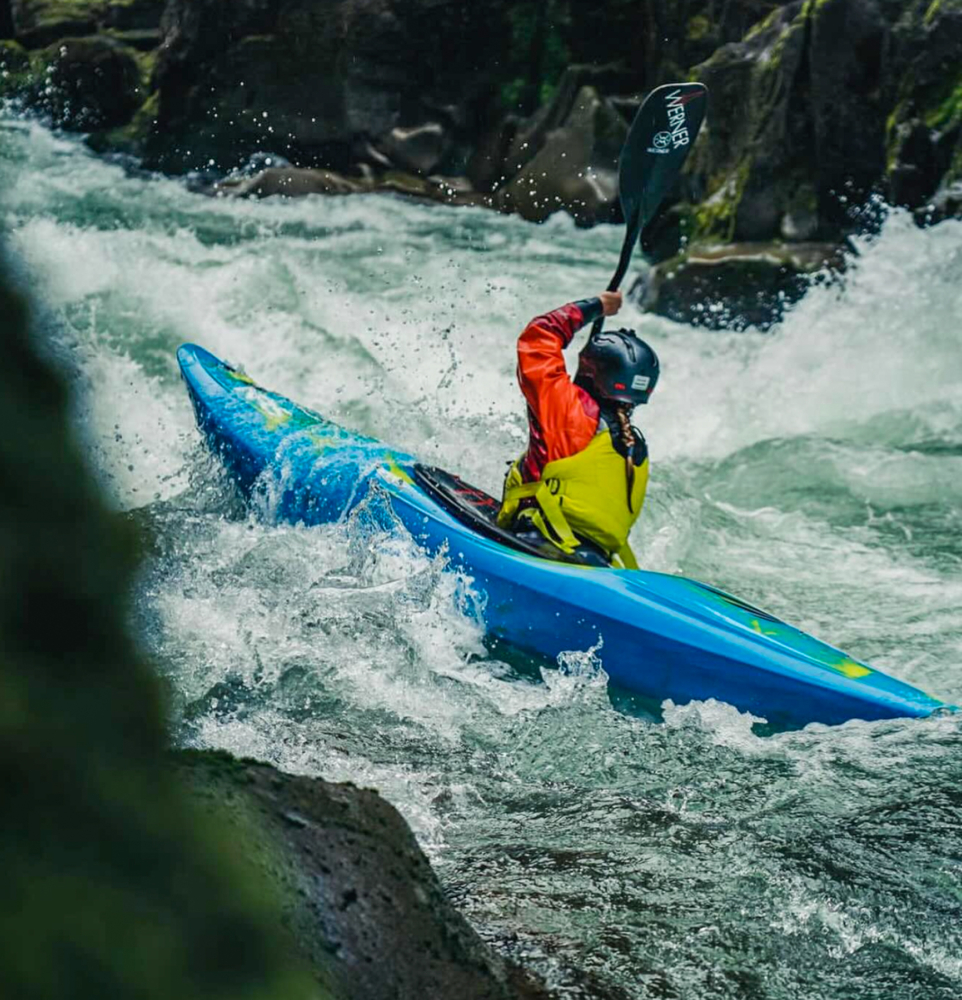
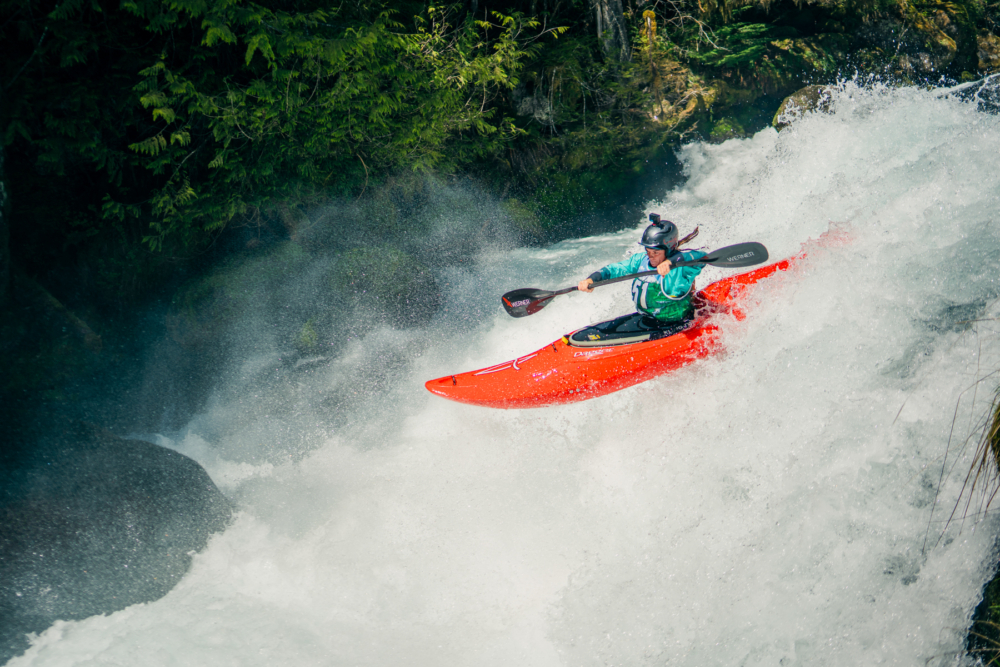
I decided I wanted to paddle as smooth and as fast as I could. Still pushing myself, but to a degree that made my brain feel comfortable. The course became a game of pulling hard in some spots, resting in others, creating a pattern that was sustainable for 15 minutes.
The night before the race brought fever-filled sweats and little rest. But when I got in my kayak that morning, I felt good. I realized I knew the lines and I could even visualize them all, in order from top to bottom. It had only taken me 50+ laps to remember that many rapids. I put my trust into the hours and hours of practice, and had the smoothest race I could have had.
That night, I learned I had won the 2025 Little White Salmon Race, but the real win felt bigger. I was proud of myself at the finish line. The elusive joy river, to me, had, finally, become truly joyful.
Post race, I continued paddling every day and smiling from ear to ear every time. The Little White is no longer a place of discomfort for me.
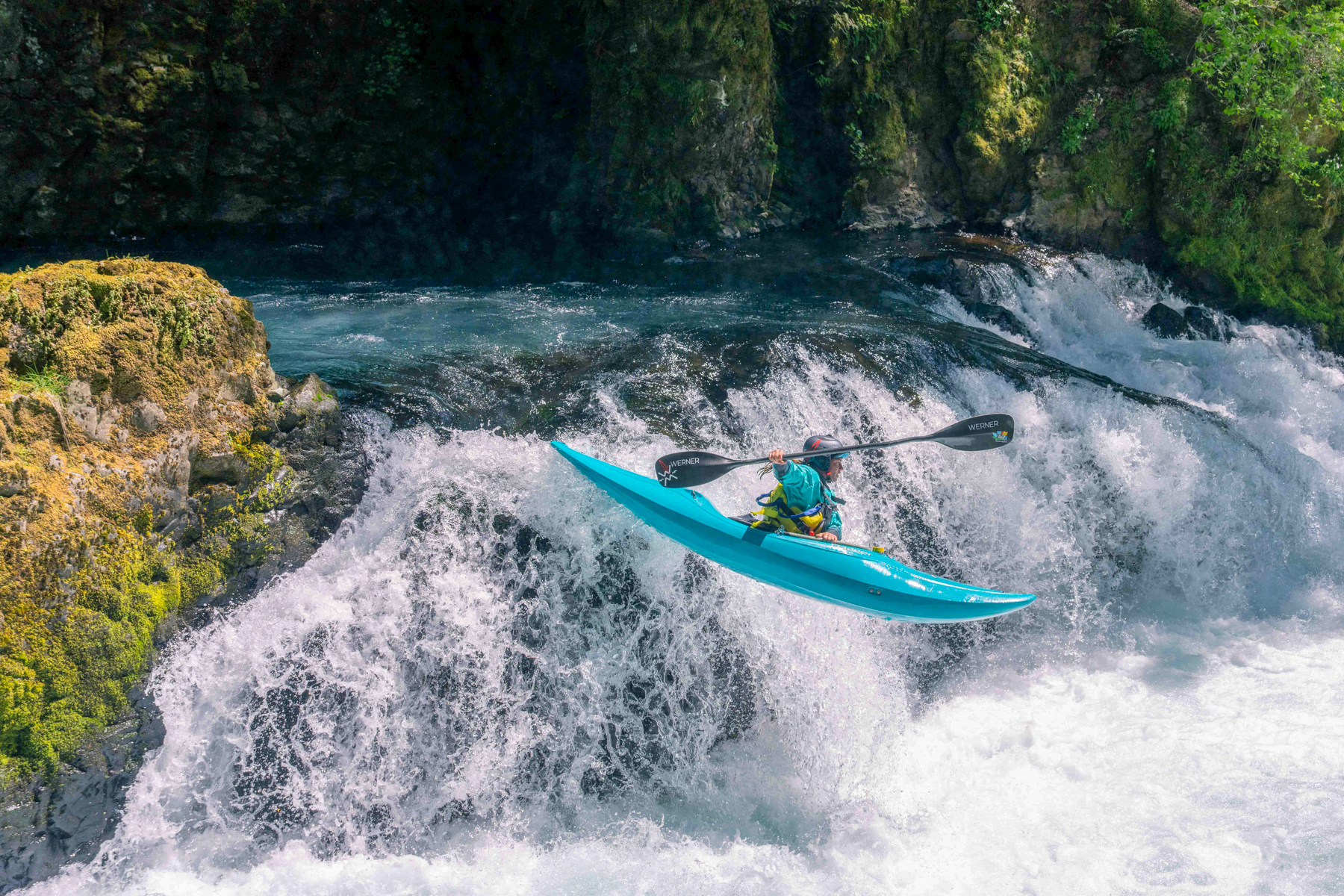
Despite kayaking for as long as I have, I still struggle with my abilities and question a lot. Winning the race doesn’t change who I am. The training leading into the race is what changed me. I realized I am stronger than I think and, despite hardships, working hard for a goal makes it that much sweeter when it’s all said and done.
The Little White is a now place of happiness (not at high water) and curiosity, where I can keep learning and growing. In pushing through to pursue this goal, I was finally able to find the true beauty of the river and find my love for this place. The shades of the blue water, the haze of sun through the lush green forests lining the riverbanks; I even noticed the musty smell of old growth.
This love story will continue, and I hope you too, can have a love story like this one.
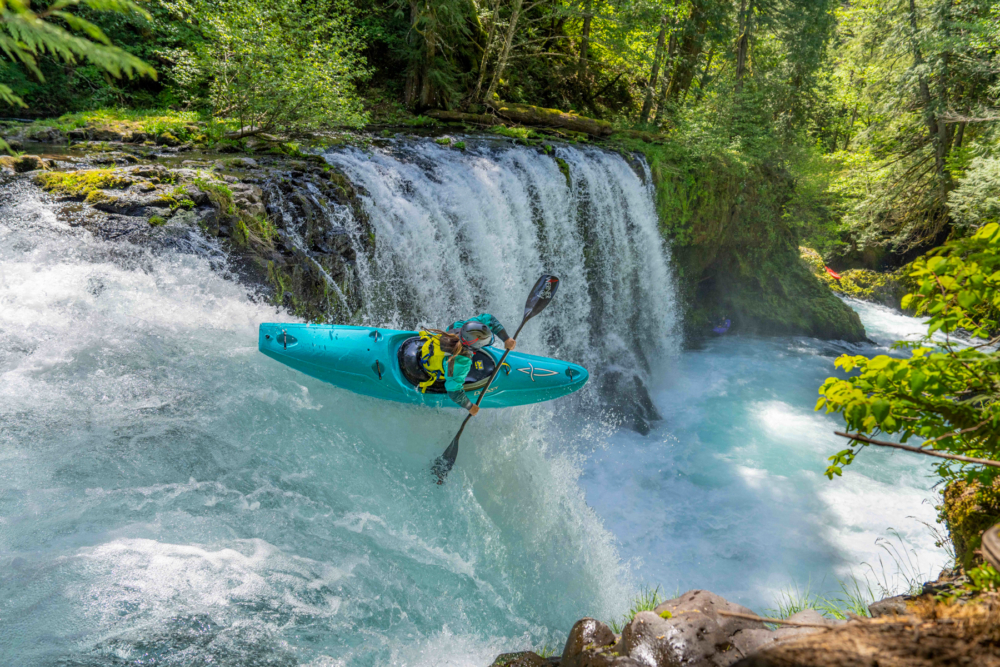
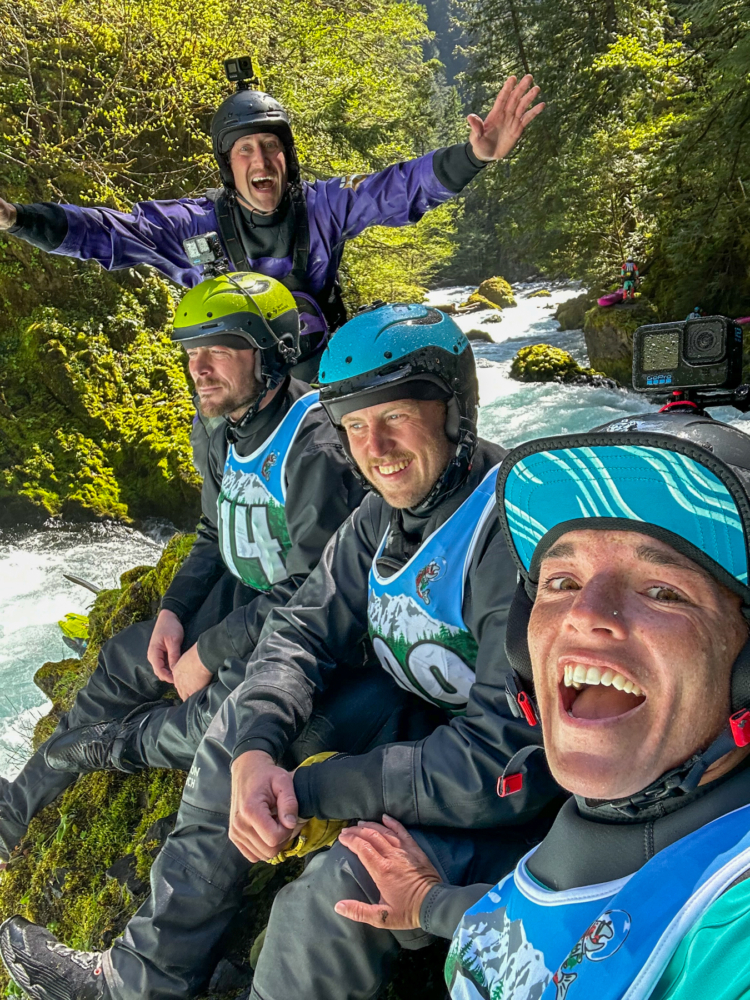
***
Guest contributor and longtime Team NRS Paddler Adriene Levknecht is a surfer, kayaker, paramedic, yogi and much more. Adriene first started kayaking on the Great Lakes near Grand Rapids, Michigan. Today, Adriene is a globally-recognized figure in whitewater with podium finishes across disciplines, including a record number of Green Race wins. Adriene now calls the PNW home (when not in El Salvador!) and she recently won her first Little White Salmon Race.
Photography courtesy of Adriene Levknecht, Spencer Clary, Todd Wells, and the Little White Salmon Race.